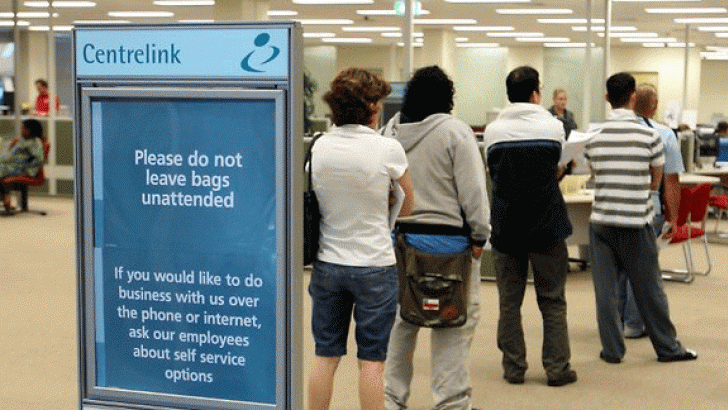
If you’re lucky, it might take only an hour and a half for an overworked staff member to flick through your job seeker diary; usually it takes much longer.
While the government makes the unemployed and underemployed jump through hoops to receive the paltry Newstart allowance, which is well below the poverty line, so-called “job providers” that have been caught rorting millions from the welfare-to-work scheme have demanded less oversight from government.
Now called Job Services Australia, the program is meant to help the long term unemployed find work. It pays private employment agencies fees for finding jobs for Centrelink recipients, or assisting them in their search for employment.
The Abbott government, as part of its agenda of cutting red tape, recently announced that from 1 July providers would no longer be required to collect documentary evidence to verify job seekers’ employment.
“Cutting red tape” is something business people like talking about. But there are other buzz words that they don’t like using so much – “fraud”, for example. According to a federal government assessment last year, private providers have been doing plenty of that. The assessment found that the $4.7 billion welfare-to-work scheme is at “high risk” of being defrauded by the government’s designated employment agencies.
An external audit of the Job Services Australia program in 2012 by former public servant Robert Butterworth identified more than $100 million in fees that had been improperly claimed in just two years. The review found that, of 2,117 claims examined, 40 percent were unsubstantiated. The review prompted fraud investigations into an unknown number of agencies.
The Catholic Church’s employment arm, CatholicCare, systematically defrauded the Job Services program by claiming it had found positions for job seekers who had in fact found jobs for themselves. This was true of up to 70 percent of cases it claimed to have “brokered”.
A December 2011 file from Victoria recorded one agency claiming “reverse marketing” fees (awarded when agencies generate a job by cold-calling employers) for placements that had already been advertised.
Fairfax used freedom of information laws to obtain copies of “provider risk alerts” compiled by the Department of Education Employment and Workplace Relations in 2011. They revealed that former employees of the ORS Group had blown the whistle on their managers for ordering them to abuse the job seeker program.
There is also a risk that agencies might benefit from unauthorised access to confidential information made available to them under the program.
In 2010, Newstart was $74 a week below the 50 percent of median income poverty line used by the OECD. A six month waiting period and other budget measures will now make it harder for the unemployed, particularly young people, to access even this paltry amount.
But for the private providers rorting the system, the age of entitlement is only just beginning.
